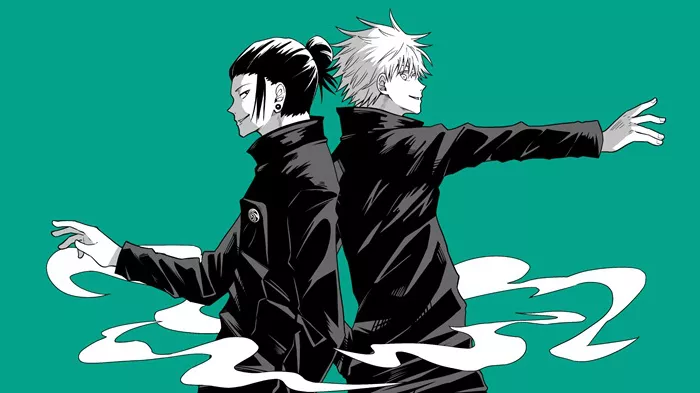In the world of Jujutsu Kaisen, Satoru Gojo stands out as one of the most powerful and enigmatic characters. Known for his unmatched strength and often nonchalant demeanor, Gojo is a complex figure whose rare moments of vulnerability offer a glimpse into his deeply hidden emotional world. One such moment of interest to fans is his reaction to the death of his former friend and comrade, Suguru Geto. This article delves into whether Gojo cried when Geto died, examining their relationship, the circumstances of Geto’s death, and Gojo’s emotional response.
The Complexity of Satoru Gojo
Satoru Gojo is not just the strongest jujutsu sorcerer; he is also a character layered with complexities and contradictions. While he often appears invincible and indifferent, his interactions and backstory reveal a deeper emotional spectrum. Understanding Gojo’s reaction to Geto’s death requires a thorough exploration of their shared history and the impact of Geto’s fall from grace on Gojo.
The Bond Between Gojo and Geto
The foundation of Gojo’s and Geto’s relationship is crucial to understanding the emotional weight of Geto’s death:
A Promising Duo
During their time at Tokyo Jujutsu High, Gojo and Geto were considered the strongest duo, both in terms of power and potential. Their camaraderie was built on mutual respect, shared experiences, and a common goal of protecting humanity from cursed spirits.
Diverging Ideals
However, their paths began to diverge when Geto’s ideology shifted dramatically. Disillusioned by the jujutsu society and its treatment of non-sorcerers, Geto developed a radical belief that non-sorcerers, whom he termed “monkeys,” should be eradicated to create a world only for jujutsu sorcerers.
The Pain of Betrayal
Geto’s defection from the jujutsu sorcerers and his subsequent actions, including mass murders and forming a cult, deeply affected Gojo. This betrayal was not merely ideological; it was personal, striking at the heart of their once unbreakable bond.
The Circumstances of Geto’s Death
Geto’s death is a pivotal moment in Jujutsu Kaisen, laden with emotional and narrative significance:
The Shibuya Incident
Geto’s death occurs after the chaotic and tragic events of the Shibuya Incident, a major arc in the Jujutsu Kaisen storyline. However, the true nature of Geto’s death is complex, involving manipulations by external forces, particularly the ancient sorcerer Kenjaku, who takes over Geto’s body.
Gojo’s Encounter with Fake Geto
During the Shibuya Incident, Gojo encounters what appears to be Geto. The realization that Geto’s body is being used by Kenjaku, and the desecration of his friend’s legacy, adds a layer of tragedy and fury to Gojo’s emotional state.
Gojo’s Emotional Response
Analyzing Gojo’s emotional response to Geto’s death and the subsequent events requires an examination of his actions and expressions during these critical moments:
Moments of Vulnerability
Gojo is typically stoic and composed, but his interactions with Geto reveal his rare moments of vulnerability. When he first learns of Geto’s radical shift, there is visible pain and sadness, hinting at the depth of his emotional turmoil.
See Also: portgas d ace girlfriend
The Final Confrontation
In their final confrontation before Geto’s death, Gojo’s resolve is tested. He remains outwardly calm, but the intensity of his emotions is palpable. The culmination of their relationship—marked by betrayal, sorrow, and a sense of inevitable tragedy—reflects in Gojo’s demeanor and actions.
Did Gojo Cry?
The manga and anime do not explicitly depict Gojo crying at the moment of Geto’s death. However, the emotional weight of the scene is conveyed through subtle expressions and the gravitas of Gojo’s actions. His silence and solemnity during the aftermath suggest a profound internal struggle, hinting at tears that may not be shed outwardly but are deeply felt within.
The Aftermath and Gojo’s Coping Mechanisms
The aftermath of Geto’s death and Gojo’s coping mechanisms further illuminate his complex emotional landscape:
A Burden of Guilt
Gojo carries a significant burden of guilt over Geto’s fate. He questions whether he could have done more to prevent Geto’s descent into darkness and whether his own actions indirectly contributed to Geto’s radicalization.
Resolving to Protect
Following Geto’s death, Gojo resolves to protect his students and the jujutsu society with renewed vigor. This determination is partly a coping mechanism, channeling his grief and regret into a protective and guiding force for the next generation.
Isolation and Reflection
Gojo often isolates himself, both physically and emotionally, as a way to cope with his immense responsibilities and the personal losses he has endured. His moments of solitude reflect his ongoing struggle to reconcile his feelings about Geto and his role as a protector.
Gojo’s Emotional Growth
Despite the immense power and confidence he exudes, Gojo’s experiences with Geto’s fall and death contribute significantly to his emotional growth and depth as a character:
A More Empathetic Leader
Gojo becomes more empathetic towards his students, understanding the importance of emotional support and guidance. His approach to teaching and mentoring evolves, emphasizing not only strength but also emotional resilience and camaraderie.
Recognizing the Fragility of Bonds
The loss of Geto teaches Gojo the fragility of even the strongest bonds. This realization makes him more attentive to the relationships he forms and the care he takes in nurturing them, aware that they can be as delicate as they are vital.
A Legacy of Understanding
Ultimately, Gojo’s experiences with Geto leave him with a legacy of understanding—the importance of seeing beyond power and ideologies to the human connections that define and drive individuals.
Conclusion: The Subtle Depths of Gojo’s Tears
In conclusion, while Satoru Gojo may not have explicitly cried when Suguru Geto died, the emotional depth and complexity of his response are undeniable. The pain of losing a cherished friend, coupled with the weight of their shared history and the tragedy of Geto’s path, manifests in Gojo’s actions, decisions, and the quiet moments of reflection that follow.
Gojo’s silent sorrow, hidden behind his stoic exterior, reveals the profound impact Geto’s death had on him. It is a testament to Masashi Kishimoto’s skillful character development that such nuanced emotions are conveyed through subtle expressions and interactions.

